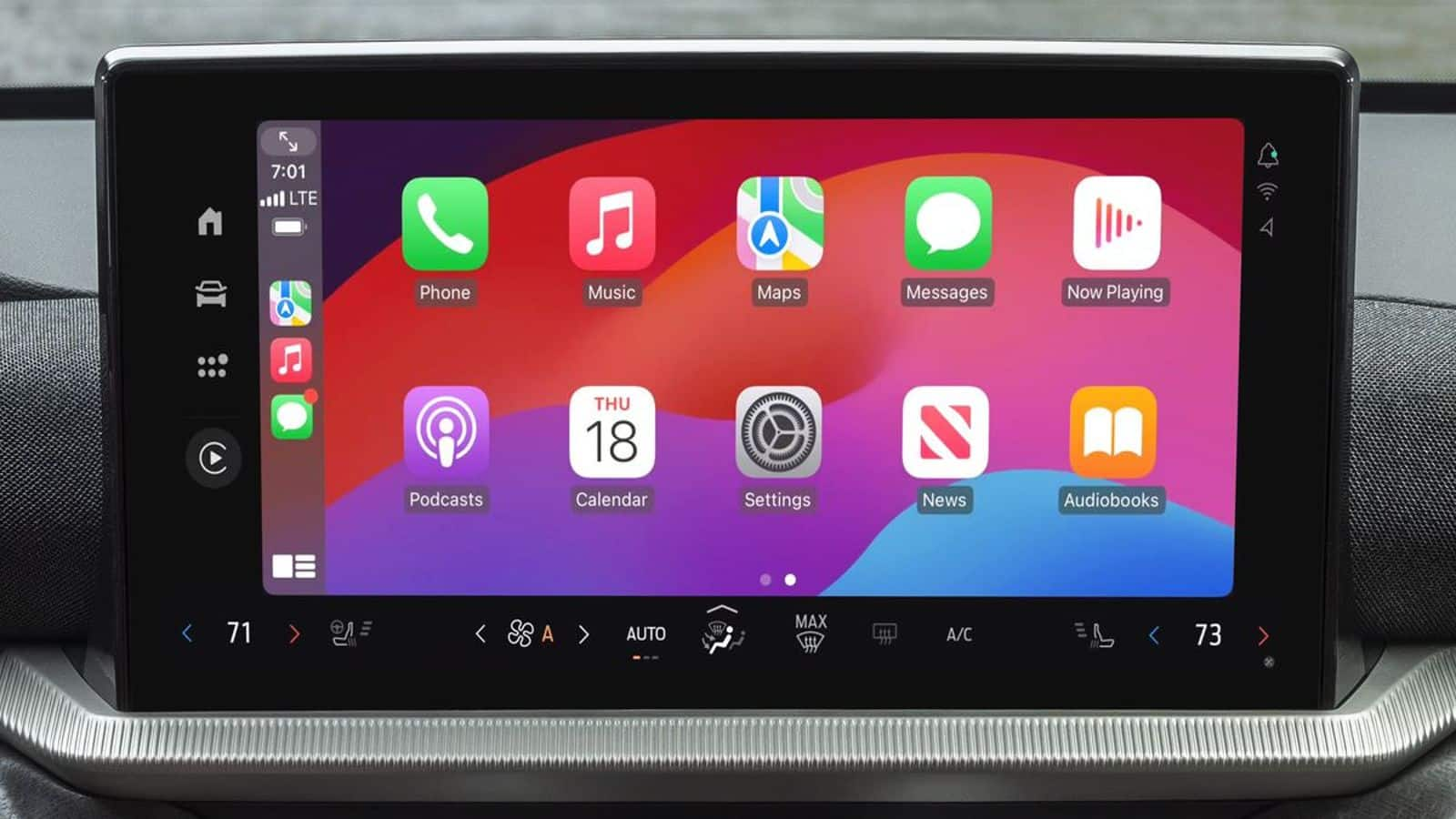
US Justice Department initiates antitrust lawsuit against Apple over CarPlay
What's the story
The US Department of Justice (DoJ) has filed an extensive 88-page antitrust lawsuit against the technology behemoth, Apple. The DOJ alleges that, like smartphones, Apple is suppressing competition and wielding undue influence over the automotive industry via its phone mirroring service, CarPlay. The lawsuit implies that Apple's infotainment systems have become a fresh platform for the company to exhibit anticompetitive conduct, adversely affecting both consumers and rival companies.
Case details
DOJ points to Apple's dominance over smartphones
The lawsuit further underscores Apple's intentions to introduce a more comprehensive version of CarPlay, which would showcase essential vehicle functions such as speed and HVAC (heating, ventilation, and air conditioning) climate control systems. The DOJ contends that by imposing the same limitations on CarPlay as it does on its smartphones, Apple is obstructing the evolution of other technologies. These technologies could potentially interact with the phone but exist independently, thereby promoting competition.
Scanner
Analysts scrutinize DOJ's perception of CarPlay
The mention of CarPlay in the lawsuit has elicited surprise among some analysts, who propose that the DOJ might be misconstruing the purpose and capabilities of the phone mirroring system. Sam Abuelsamid, an analyst at Guidehouse Insights and a specialist in vehicle software, commented, "Even with the next-gen system, OEMs don't actually have to let Apple take over all the screens. They can limit the interface to whichever screens they want."
Insights
DOJ also focuses on Apple's digital key functions
The lawsuit also scrutinizes the digital key functions accessible through Apple's Wallet feature. The DOJ asserts that these keys, which utilize a phone's near-field communication (NFC) or ultra-wideband (UWB) technology to lock, unlock, or start a car, are another cross-platform technology that Apple uses to fortify its supremacy in the smartphone market. This is perceived as another instance of the company's alleged anticompetitive conduct.
Facts
Apple charged with inflating prices
The DOJ also accuses Apple of escalating prices for consumers and developers by making users more dependent on its phones. The government delineates several methods through which Apple has allegedly sustained its monopoly unlawfully, including disrupting "super apps," and degrading the quality of messaging between the iPhone and competing platforms. It also describes how Apple has restricted third-party smartwatch functionality with iPhones and barred third-party developers from creating rival digital wallets.
Findings
DOJ calls for court intervention against Apple's practices
DOJ Antitrust Division Chief, Jonathan Kanter, stated, "For years, Apple responded to competitive threats by imposing a series of 'Whac-A-Mole' contractual rules and restrictions that have allowed it extract higher prices from consumers, impose higher fees on developers/creators, and to throttle competitive alternatives from rival technologies." The DOJ is urging the court to prohibit Apple from leveraging its control of app distribution and private APIs to undermine cross-platform technologies. The enforcers also seek any other relief necessary to reestablish competition.